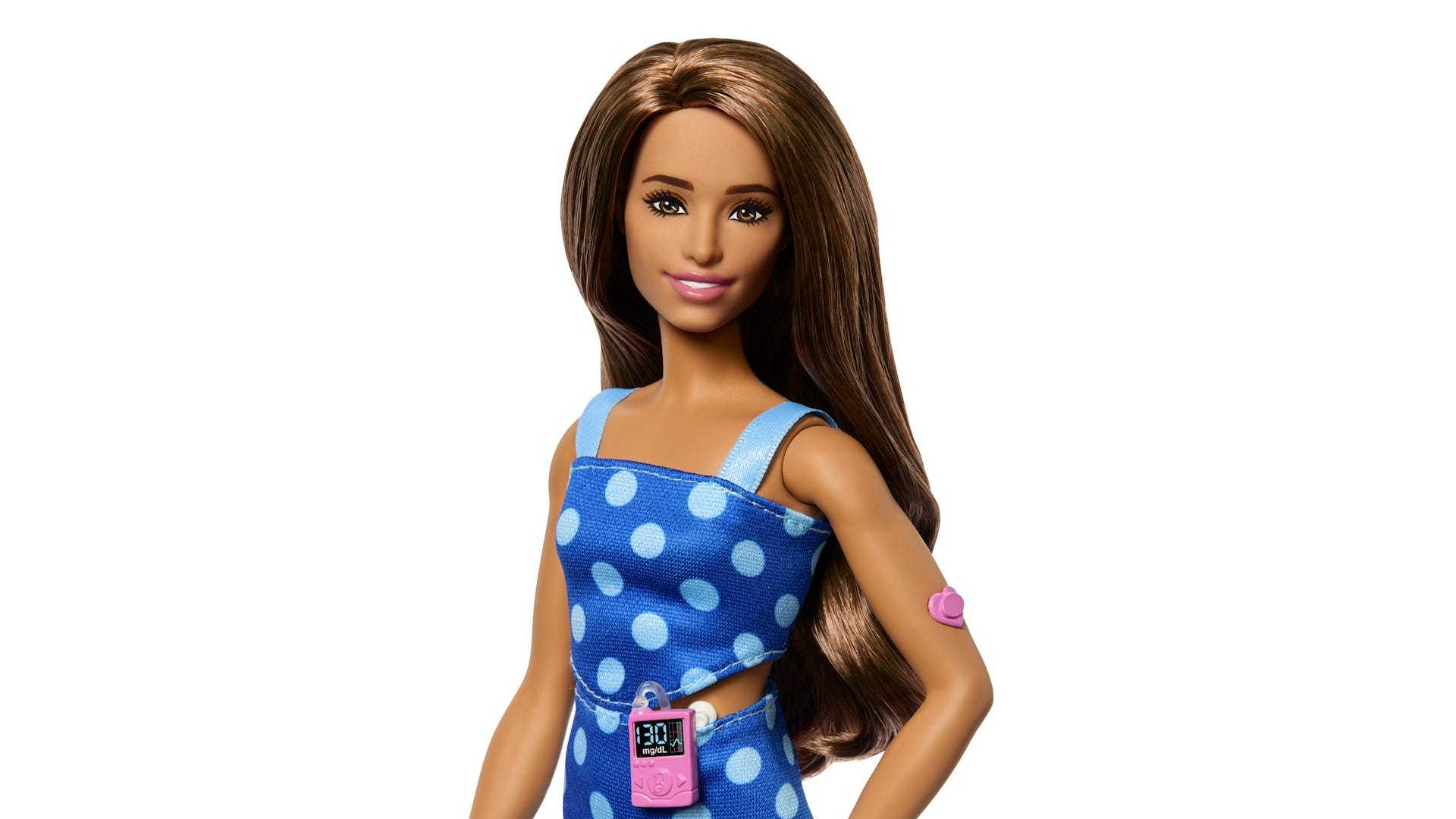Entertainment
New Barbie Doll Features Type 1 Diabetes Gear for Representation

WASHINGTON, D.C. — Mattel has introduced a new Barbie doll equipped with diabetes management tools, making her the brand’s first doll with type 1 diabetes. The doll was launched on Tuesday during the Breakthrough T1D Children’s Congress, a three-day event in the nation’s capital aimed at advocating for youth living with diabetes.
The Barbie sports a chic blue polka-dot crop top and a ruffled miniskirt, along with an insulin pump and a continuous glucose monitor. This initiative was developed in collaboration with Breakthrough T1D, formerly known as the Juvenile Diabetes Research Foundation, to reflect the approximately 304,000 children and teens in the United States who manage this condition.
The launch coincided with the event’s push to encourage Congress to renew funding for the Special Diabetes Program, which is set to expire in September. Emily Mazreku, the director of marketing and communications at Breakthrough T1D, emphasized the importance of this funding amid recent cuts to federally funded projects.
Type 1 diabetes is an autoimmune condition that disrupts insulin production, requiring individuals to manage their blood sugar levels through insulin injections or pumps. Barbie’s new design aims to shed light on the daily challenges faced by those with the condition, featuring a phone app that displays her blood glucose readings.
Mazreku, who has lived with type 1 diabetes, noted the extensive development process for the doll, which included nearly two years of focus groups to ensure accurate representation of the type 1 diabetes community. “Mattel approached us, and they wanted this to be a part of their Fashionista line,” she said.
The Fashionista line includes dolls of various appearances and abilities, which empowers children to see a broader representation of themselves and others. Mattel has previously released dolls with disabilities, including one in a wheelchair and another with Down syndrome, highlighting the importance of inclusivity.
Dr. Sian Jones of Queen Margaret University explained how playing with diverse dolls can foster empathy among children. “When kids play with dolls that have mobility challenges, it helps them understand the struggles of people with disabilities,” she said.
After receiving the new doll, Mazreku shared a touching moment with her daughter. “She looked at me and said, ‘She looks like Mommy,’” Mazreku recalled, emphasizing the significance of representation for all children.












